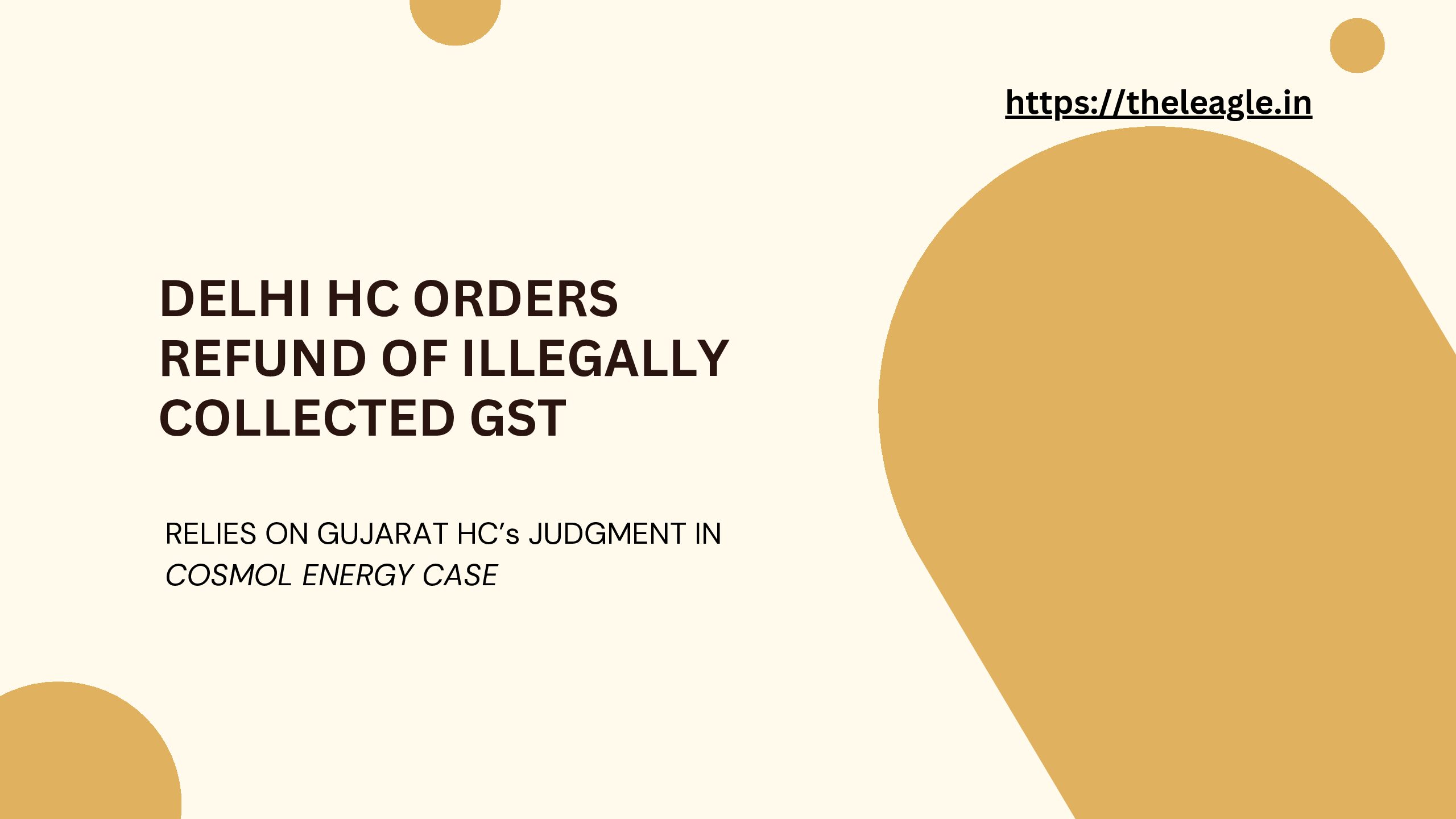The Delhi High Court in a recent order[1] followed the Gujarat High Court’s judgment in M/s Cosmol Energy Private Limited case[2] wherein it held that Section 54, CGST Act, 2017 is not applicable for illegally collected GST or GST paid under a mistake. Section 54 prescribes an outer time limit of two years for filing an application for refund and the High Court held that the said time limit would not apply in the impugned case since the assessee was under the mistaken belief that its services were chargeable to GST.
Facts
The petitioner in the impugned case, Delhi Metro Rail Corporation (‘DMRC’) provided services to Surat Municipal Corporation wherein it prepared a detailed project report for the purpose of development of a rail project in the City of Surat. The invoice raised by DMRC was of Rs 19,04,520/- and it included GST of Rs 2,90,520/-. However, the City of Surat paid DMRC only Rs 16,14,000/- and did not pay the GST amount included in the invoice by DMRC.
However, DMRC to ensure compliance with its statutory obligations paid a sum of Rs 2,90,520/- as GST to the Revenue Department. DMRC was latter informed by the Surat Municipal Corporation that the services billed by it were not exigible to GST under the relevant Notification, i.e., Notification 12/2017 – Central Tax (Rate) dated 28.06.2017. DMRC there after filed an application for refund which was rejected by the Revenue Department on the ground that the application was filed after two years had elapsed.
DMRC’s argument against the rejection of its refund application was that it would amount to violation of Article 265 of the Constitution since it would amount to collection of tax without the authority of law.
Delhi High Court Relies on M/s Cosmol Energy Case
The Gujarat High Court in M/s Cosmol Energy case upheld the petitioner’s claim for refund of ocean freight paid on reverse charge basis after Supreme Court in Mohit Minerals case declared the said levy to be unconstitutional. The petitioner’s application for refund of Integrated GST was refused on the ground that it was filed after the relevant date prescribed under Section 54, CGST Act, 2017 similar to the facts of the impugned case. In M/s Cosmol Energy case, the Gujarat High Court held that:
Section 54 of the CGST Act is applicable only for claiming refund of any tax paid under the provisions of the CGST Act and/or the GGST Act. The amount collected by the Revenue without the authority of law is not considered as tax collected by them and, therefore, Section 54 is not applicable. (para 7)
The Gujarat High Court also quoted Article 265 of the Constitution to state that no tax shall be collected and levied except by authority of law and the State was bound to refund the tax collected illegally.
In the impugned case, the Delhi High Court relied on the Gujarat High Court’s observations in M/s Cosmol Energy case, noted the fact that the said decision had not been appealed against by the State, indicating the State’s acceptance of it, and observed that DMRC was not liable to pay GST on the services rendered by it and the GST deposited by the DMRC ‘on an erroneous belief that payment for services rendered by it were chargeable to tax, cannot be retained by the respondents.’ (para 12) The High Court was categorical in its conclusion that Section 54 does not apply where GST is not chargeable and it is established by the assessee that an amount has been deposited under a mistake of law.
Conclusion
It is one of the fundamental tenets of the Constitution that no tax can be levied and collected except by the authority of law as succinctly stated in Article 265 of the Constitution. The Delhi High Court has reiterated a long line of jurisprudence, but the law on the point remains at a stage of infancy under GST. Hopefully, the combined effect of the Gujarat High Court and the impugned judgment of the Delhi High Court would provide greater clarity to the taxpayers going forward.
[1] Delhi Metro Rail Corporation Ltd v Additional Commissioner, CGST Appeals-II and Ors 2023: DHC: 6874:DB.
[2] Cosmol Energy Private Limited v State of Gujarat 2020 (12) TR 4336.
